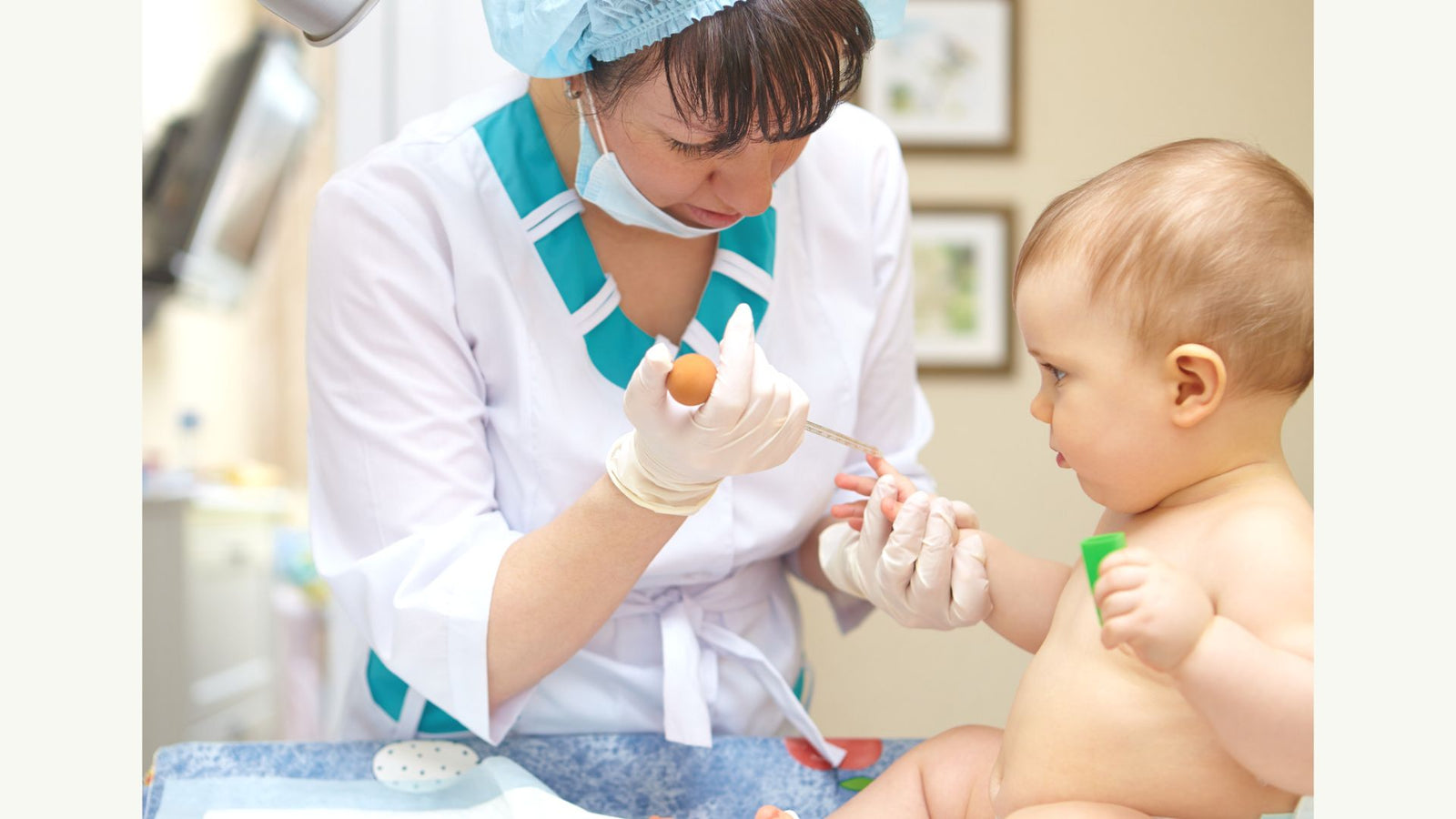Essential Reasons for Regular Infant Health Checks

Prioritising Regular Infant Health Checks
Amidst the joy of welcoming a new baby into the world, it is crucial to focus on your child's health and well-being from the very start. Regular infant health checks are fundamental to ensuring your baby's optimal development and addressing any concerns early on. For new parents, childcare providers, and young families, understanding the importance and advantages of these health checks can make a significant difference in raising a healthy child.
The Role of Regular Health Checks in Infant Development
Regular health checks play a pivotal role in monitoring and promoting your baby's overall development. These appointments allow healthcare providers to track your infant's growth, development milestones, and general well-being. By attending these check-ups, parents can ensure that any potential health issues are identified and addressed promptly.
Healthcare professionals use these visits to measure your baby's weight, length, and head circumference. These measurements are essential indicators of your child's growth patterns and overall health. Additionally, these checks provide an opportunity to discuss developmental milestones such as sitting, crawling, and walking, ensuring that your baby is on the right track.
Early Detection of Health Issues
One of the most significant advantages of regular infant health checks is the early detection of potential health issues. Many conditions, if caught early, can be treated more effectively and with better outcomes. For example, congenital heart defects, hearing impairments, certain cognitive impairments, and vision problems can all be identified during routine check-ups.
During these visits, healthcare providers perform various screenings and tests to detect any abnormalities. For instance, a simple hearing test can identify hearing loss that may affect speech and language development. By catching these issues early, parents can work with medical professionals to develop appropriate interventions and treatment plans.
Immunisations and Preventive Care
Immunisations are a crucial aspect of regular infant health checks. Vaccinations protect your baby from a range of serious and potentially life-threatening diseases. By adhering to the recommended immunisation schedule, parents can ensure their child is protected against illnesses such as measles, mumps, rubella, and whooping cough.
Healthcare providers also use these visits to offer preventive care advice. This includes guidance on feeding, sleep patterns, and safety measures to prevent accidents and injuries. By following these recommendations, parents can create a safe and nurturing environment for their baby.
Building a Relationship with Healthcare Providers
Regular health checks provide an excellent opportunity for parents to build a strong relationship with their healthcare provider. Establishing a trusting partnership with your child's doctor is essential for effective communication and collaborative care. During these visits, parents can ask questions, voice concerns, and receive personalised advice tailored to their baby's needs.
A strong doctor-patient relationship also ensures continuity of care. When healthcare providers are familiar with your child's medical history and development, they can offer more informed and personalised guidance. This relationship fosters a sense of security and reassurance for parents, knowing that their baby's health is in good hands.
Monitoring Growth and Nutrition
Growth and nutrition are critical components of infant health. Regular check-ups allow healthcare providers to monitor your baby's growth patterns and nutritional intake. They can assess whether your child is receiving the necessary nutrients for healthy development and offer dietary recommendations if needed.
Healthcare professionals also provide guidance on breastfeeding, formula feeding, and introducing solid foods. These discussions help parents make informed decisions about their baby's diet and ensure that their child is getting the right balance of nutrients.
Addressing Developmental Concerns
Every child develops at their own pace, but regular health checks help identify any developmental delays or concerns. If your baby is not reaching certain milestones within the expected timeframe, healthcare providers can recommend further evaluations or interventions. Early intervention is crucial for addressing developmental issues and supporting your child's progress.
For example, if a baby is not sitting up or crawling by a certain age, healthcare providers can assess for potential underlying causes and refer parents to specialists if necessary. Early intervention programs can provide therapies and support to help your child achieve their developmental goals.
Supporting Mental and Emotional Well-Being
Infant health checks are not just about physical health; they also address your baby's mental and emotional well-being. Healthcare providers can offer guidance on creating a nurturing and stimulating environment that promotes cognitive and emotional development. They can also help parents recognise signs of stress or anxiety in their baby and provide strategies to support their emotional health.
By focusing on mental and emotional well-being, parents can foster a positive and loving environment that encourages healthy development. This holistic approach to infant health ensures that your baby thrives in all aspects of their life.
Educating Parents and Caregivers
Regular health checks serve as an educational resource for parents and caregivers. Healthcare providers offer valuable information on various aspects of infant care, including sleep routines, hygiene practices, and safety measures. This knowledge empowers parents to make informed decisions and provide the best possible care for their baby.
For example, parents can learn about safe sleep practices to reduce the risk of sudden infant death syndrome (SIDS). They can also receive guidance on babyproofing their home to prevent accidents and injuries. By staying informed, parents can create a safe and nurturing environment for their child.
Encouraging Healthy Habits from the Start
Instilling healthy habits from a young age sets the foundation for a lifetime of well-being. Regular health checks encourage parents to prioritise their baby's health and adopt healthy practices. This includes promoting regular physical activity, proper nutrition, and good hygiene habits.
By establishing these habits early on, parents can help their child develop a positive attitude towards health and wellness. This proactive approach ensures that your baby grows into a healthy and thriving individual.
Detecting and Managing Allergies
Allergies are common in infants, and early detection is crucial for managing them effectively. Regular health checks allow healthcare providers to identify potential allergies and recommend appropriate measures to prevent allergic reactions. This includes monitoring for signs of food allergies, skin reactions, and respiratory issues.
For example, if a baby shows symptoms of a food allergy, healthcare providers can recommend allergy testing and provide guidance on introducing new foods safely. By managing allergies early on, parents can ensure their child's well-being and prevent complications.
Promoting Parental Confidence
Parenting can be overwhelming, especially for new parents. Regular health checks provide reassurance and support, boosting parental confidence. Knowing that their baby's health is being monitored by professionals gives parents peace of mind and helps them feel more confident in their caregiving abilities.
Healthcare providers can also offer practical tips and advice to address common parenting challenges. Whether it's dealing with sleep issues, feeding concerns, or developmental questions, parents can rely on their healthcare provider for guidance and support.
Creating a Lifelong Health Plan
Regular infant health checks lay the groundwork for a lifelong health plan. By starting early, parents can establish a routine of regular medical visits and preventive care. This proactive approach to health ensures that your child receives ongoing monitoring and support as they grow.
As your child transitions from infancy to toddlerhood and beyond, regular check-ups continue to play a vital role in maintaining their health and well-being. By prioritising regular health checks, parents can set their child on a path to a healthy and fulfilling life.
In Summary
Regular infant health checks are essential for ensuring your baby's optimal growth, development, and well-being. By attending these check-ups, parents can detect potential health issues early, monitor growth and nutrition, and receive valuable guidance from healthcare professionals. These visits also foster a strong doctor-patient relationship, provide educational resources, and support parental confidence.
For new parents, childcare providers, and young families, prioritising regular health checks is a proactive step towards raising a healthy and thriving child. By staying informed and engaged in your baby's health, you can create a nurturing environment that supports their overall development. Take advantage of these opportunities to ensure your baby receives the best possible care and starts life on the right foot.
~ jinki.com




